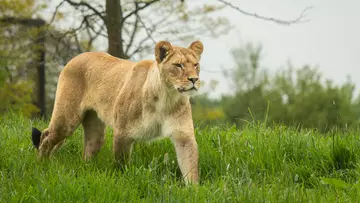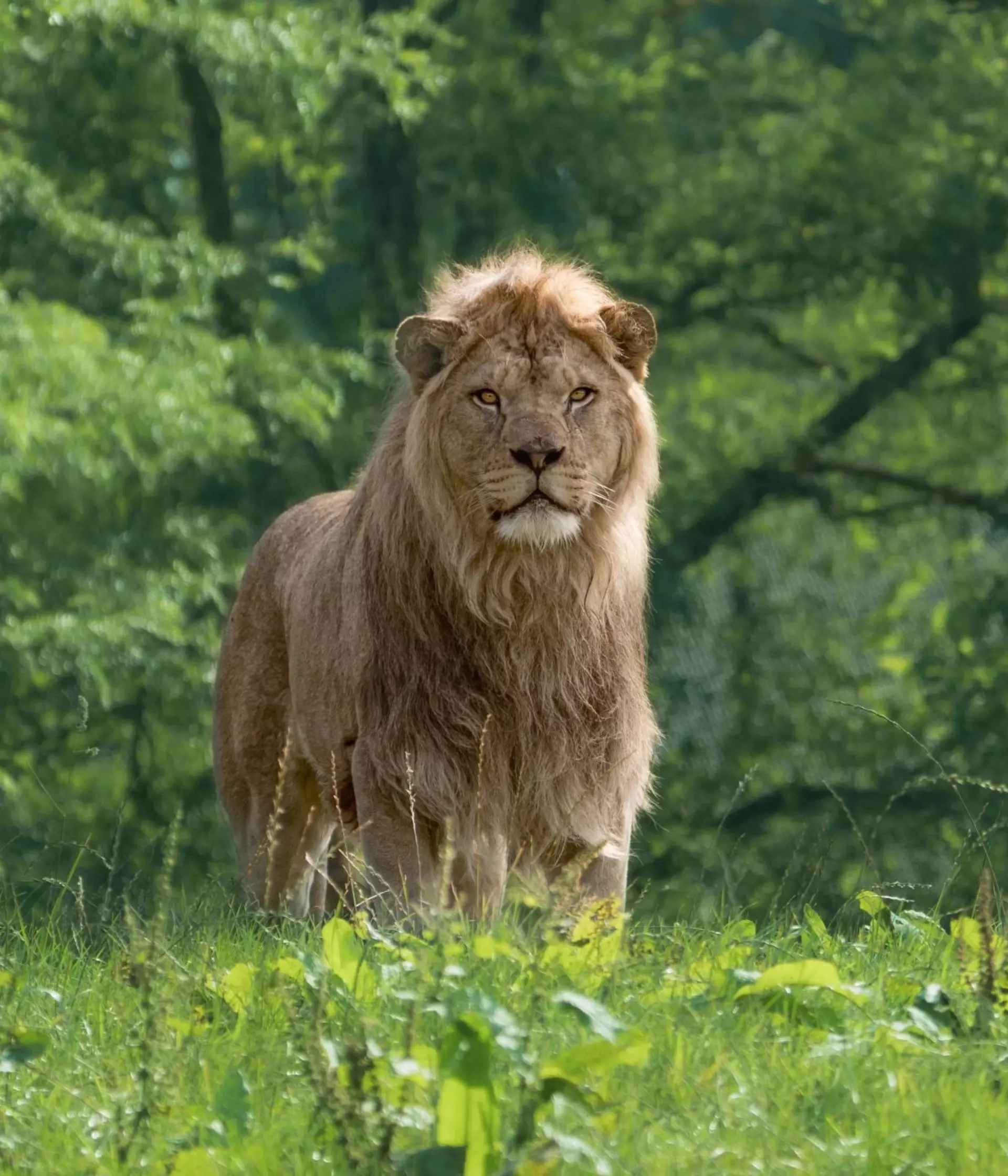Are there African lions at Whipsnade Zoo?
Whipsnade Zoo is home to a Northern African lion pride, including two litters of lion cubs - a vital addition to the conservation breeding programme for these amazing big cats. See if you can spot them playing in their paddock when you visit Whipsnade Zoo, and win the chance to help us name them!
Win the chance to help choose a name for two of our adorable lion cubs, meet their zookeeper and stay overnight at a Whipsnade Zoo Lookout Lodge, with after-hours tours of the Zoo, dinner, breakfast and two days’ free entry to Whipsnade Zoo.
How many lions are at Whipsnade Zoo?
Whipsnade Zoo is home to ten lions.
- Lionesses Waka and Winta arrived from Antwerp Zoo in Belgium in early May 2023.
- A male lion, Malik, soon joined them from Neuwied Zoo in Germany.
- Three lion cubs were born to mum Winta in November 2024, a huge conservation success for the vulnerable sub-species.
- A further four cubs were born in January 2025 to mum Waka.
What species of lion are at Whipsnade Zoo?
Whipsnade Zoo's lions are Northern African lions, a subspecies that was only officially confirmed by scientific studies in 2017, which recognised that there are in fact two distinct subspecies of African lion: Northern and Southern. Northern lions are facing greater threats in the wild and are therefore in most need of vital conservation attention.

With a membership, you can visit our lions at both Whipsnade and London Zoo with unlimited entry for a whole year! You'll also be supporting our global conservation work and helping us to protect wildlife around the world.
African lion facts
How strong is a lion?
Lions can run at up to 46 mph and can weigh up to 190kg. An African lion's bite force is around 650-1000 PSI in strength, which although strong enough to kill large prey in a single bite, is actually smaller than some other big cats like jaguars and tigers.
Male vs female lions
Lions are unique among cats in that the male can be easily distinguished from the female (lioness) because he possesses a mane of hair.
Lion night vision
As in most cats, lions' eyes are adapted for seeing at night when they do a lot of hunting.
Lion claws
Their claws can be retracted in sheaths to prevent them getting blunted when walking across the savannah, which they can do almost noiselessly on soft pads.
What do African lions eat?
African lions are carnivorous, mainly eating mammals from giraffes to buffalo, deer and carrion.
What threats do African lions face in the wild?
African lions are categorised as Vulnerable on the IUCN Red List. Their population is decreasing with threats including hunting, and habitat destruction for logging, livestock farming or housing.
How can African lions be protected?
Whipsnade Zoo is part of ZSL, a science-driven conservation charity, working to protect species around the world. A team from ZSL is striving to protect lions, and other species, in the W-Arli-Pendjari conservation complex, spanning the borders of Burkina Faso, Niger, and Benin, which holds 90% of the lions remaining in West Africa.
Every visit to Whipsnade Zoo is helping to support our vital work.

Find the perfect present in our online shop with our lion gifts! Every purchases supports ZSL's vital science and conservation work.
